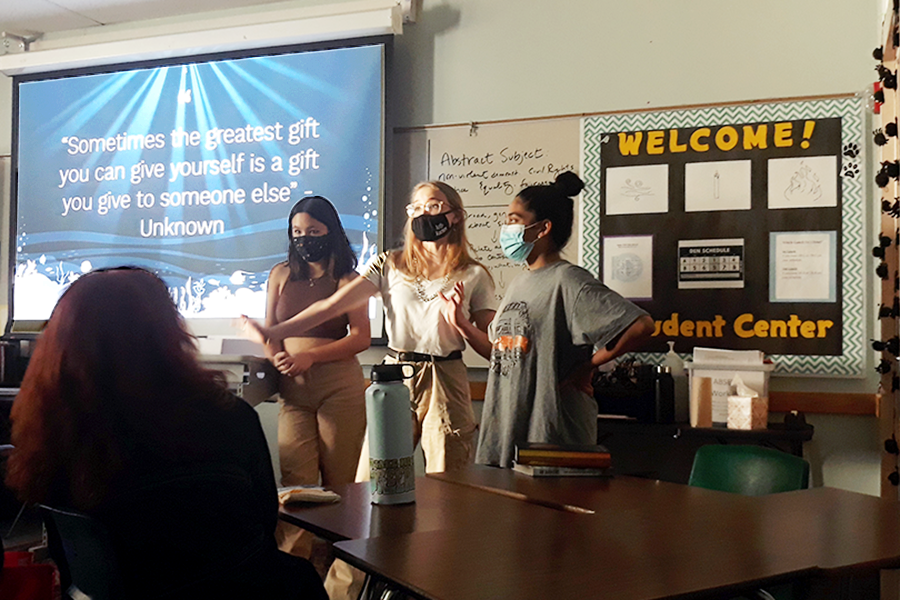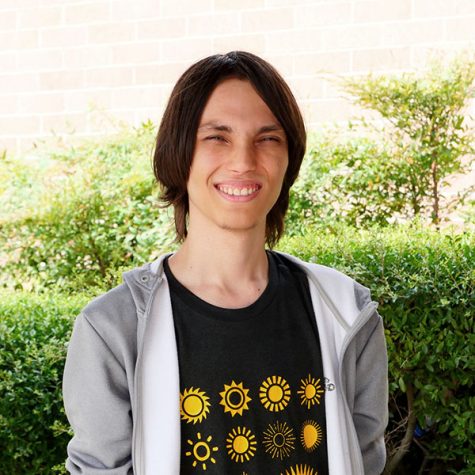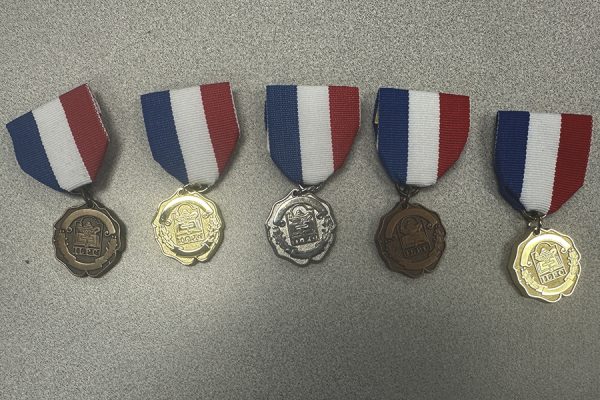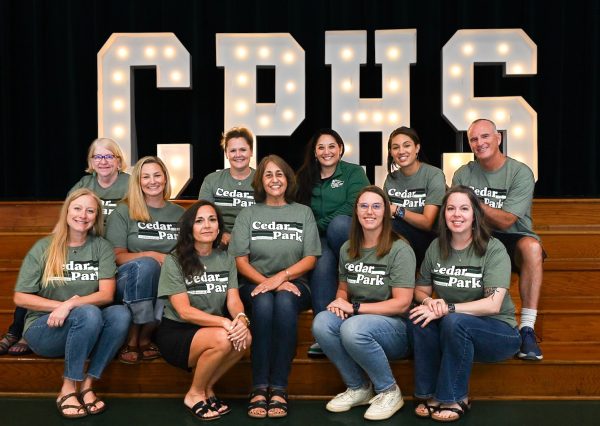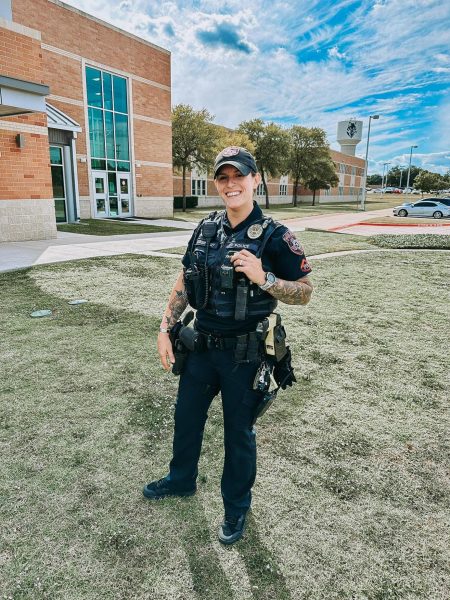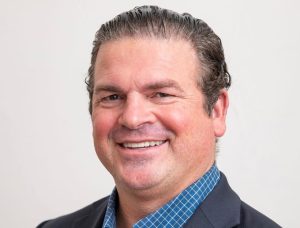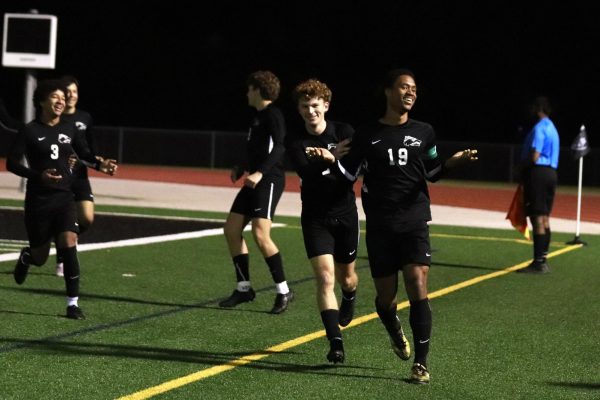Taking Care of Ourselves
New Club Focuses On Mental Health
Seniors Piper Vu, Sydney Fuller, and Hemani Goje give a presentation in the first meeting of the Mental Health Club on Oct. 13. The three Mental Health Club officers explained what the club’s goals and activities were before letting the club’s members speak to each other in a fulfillment of their key promise to let students talk and vent about their lives. “We want to spread the word that you are allowed to vent your frustrations, have good days, bad days, and most importantly know how to deal with your psychological distress,” Goje said. “We all come from different struggles and have different perspectives. So, we wanted to respect the different perspectives and create ways to cope.”
October 14, 2021
Mental health is becoming an increasingly important topic for teenagers to confront: depression rates rose 63 percent among adolescents between 2013 and 2018, and the COVID-19 pandemic only worsened the issue as pandemic-related lifestyle issues brought their routine social interactions and future plans to a screeching halt. To combat this, seniors Hemani Goje, Sydney Fuller, and Piper Vu have started the Mental Health Club to give students the support they need.
As students begin the year back from virtual learning and social distancing measures, they are likely to face the academic, social, and psychological challenges of learning in an in-person classroom environment instead of on a screen. According to NPR, uncertainty about the future school year and the prospect of adapting back to in-person school, especially given how teenagers fell behind on their schoolwork during the pandemic, is contributing to the ongoing rise of mental health emergency visits among ages 12 – 17. Mental Health Club aims to help students cope with their challenging situations by offering a support group where they receive advice from others who are experiencing similar struggles.
“As we’ve matured through high school and learned how to cope with our struggles, we wanted to offer the resources that we found helpful to other high schoolers who have the same issues and give them a space where they feel supported in a way that they won’t get elsewhere,” Fuller said. “Our goals with this club are to give students the assistance they need to manage their mental health and to prevent any stress they may feel in the first place.”
Goje, who was herself struggling with the academic pressure of trying to focus on her grades during her important junior year, said she started the club in order to spread awareness of mental health around the school amid the various struggles that students, including Goje, would be going through.
“As a senior, I wished to mitigate the lows I’ve had and know others have experienced,” Goje said. “The anxiety caused by grades, ranks and the overload of school, in general, made my mental health deteriorate. I don’t want that for other students at CPHS. I want to spread the word that you are allowed to vent your frustrations, have good days and bad days and most importantly know how to deal with your psychological distress. We all come from different struggles and have different perspectives. So, we wanted to respect those different perspectives and create ways to cope.”
Two main benefits this club offers for members are allowing students a space to vent and helping them with strategies members have picked up along their own mental health journey. Venting may look like a student telling other members about their week, especially if there were difficult periods they endured through that took a toll on their psychological well-being, while methods taken from another student’s insight into their problems or from various therapeutic treatment sources are intended to alleviate stress and equip students with the necessary tools to face their difficult moments head-on.
“Members are allowed to share things they might feel uncomfortable sharing elsewhere,” Fuller said. “Me and the other seniors who founded this club also have a collection of techniques we’ve built throughout the years by working through our problems or taking them from the previous therapies we’ve been in, such as cognitive reframing or breathing exercises, that serve to aid the students as coping mechanisms.”
The direct implementation of these therapeutic techniques was seen in the Mental Health Club’s first meeting on Oct. 13, where a portion was dedicated to simply chatting between tablemates about each other’s life, establishing the club’s role as a place to slow down and reflect on mental health with others as a safe space from the stressors that school may present. This was further cemented with the next activity, a five-minute Peloton meditation session where members were free to collect their own thoughts amid a background of calm ambient noise. According to Junior Nicholas Doluisio, who has suffered from social anxiety and depression in the past few years, these activities were helpful in diminishing his worries.
“Meditating and getting to talk to people about their day were the little things that went a long way in regards to mental health,” Doluisio said. “Mental health, especially as a junior, is something that I want others to take more seriously, as the academic pressure and the anxiety about your future makes it important to have a space where you can talk about those kinds of issues and vent everything out. My role as a drum major in the school band requires a lot of social skills, and although I’ve improved on my fear about making friends and reaching out to people, the Mental Health Club will definitely help me even more as we progress through the year.”
In the future, the club will offer more activities that help members open up to other forms of self-expression, such as painting and a show-and-tell portion where students may bring an item that helped them cope with any worries they have faced in the past. By opening up, members will feel safer in a space where they are free to communicate their feelings.
“Our activities will help distract students from stress and give them a break from school,” Vu said. “By talking about mental issues, we hope it’ll allow students to feel less afraid of their mental health issues and understand that what they are going through is normal.”
The club’s sponsor, AP English III teacher Kristin Burke, said she is just as familiar with the mental health struggles a student might be experiencing, witnessing her classes scramble to study and get their work in on time during online school. Burke hopes that current interest in the Mental Health Club indicates a wider awareness of mental health and increased demand from students to have those resources available.
“The room was full of students who wanted to have that support and not feel isolated, and it would only be beneficial for that sort of interest in the club to perpetuate,” Burke said. “The stigma surrounding mental health these days is much better than it used to be, but there is still a lack of discussion on topics like depression and it’s frustrating that students have to feel alone when they endure mental health issues. It’s important that students have a space to discuss this without feeling like anyone is judging them.”

![Posing with their UIL State Trophy, the Robolobos Van Halen Team beams with excitement after their win. “It was a team effort,” junior Noah Vo said. “I was happy because something happened in the first match and the match was also really close. So [when] they finally revealed it, I was pretty happy.” Photo courtesy of Amy Lovelace](https://cphswolfpack.com/wp-content/uploads/2025/05/IMG_0910-EDIT-1200x723.jpg)

![Broadcast, yearbook and newspaper combined for 66 Interscholastic League Press Conference awards this year. Yearbook won 43, newspaper won 14 and broadcast took home nine. “I think [the ILPC awards] are a great way to give the kids some acknowledgement for all of their hard work,” newspaper and yearbook adviser Paige Hert said. “They typically spend the year covering everyone else’s big moments, so it’s really cool for them to be celebrated so many times and in so many different ways.”](https://cphswolfpack.com/wp-content/uploads/2025/05/edited-ILPC.jpg)











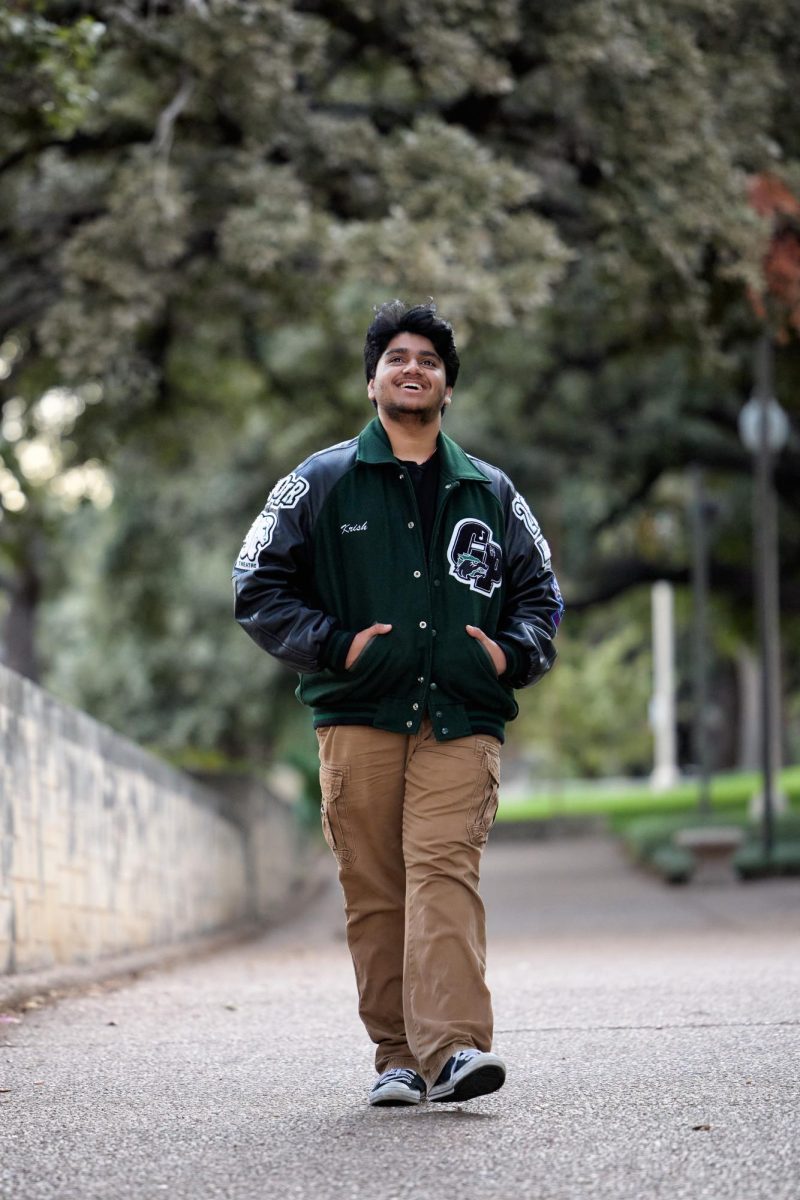

![Bringing her arm over her head and taking a quick breath, junior Lauren Lucas swims the final laps of the 500 freestyle at the regionals swimming competition on date. Lucas broke the school’s 18-year-old record for the 500 freestyle at regionals and again at state with a time of 4:58.63. “I’d had my eye on that 500 record since my freshman year, so I was really excited to see if I could get it at regionals or districts,” Lucas said. “ State is always a really fun experience and medaling for the first time was really great. It was a very very tight race, [so] I was a bit surprised [that I medaled]. [There were] a lot of fast girls at the meet in general, [and] it was like a dogfight back and forth, back and forth.” Photo by Kaydence Wilkinson](https://cphswolfpack.com/wp-content/uploads/2025/03/Kaydence-2.7-23-edit-2.jpg)
![As the support team sits and poses for a photo in the cafeteria with the counseling team they eagerly wait to start their day. "We [all] seem to be a team, I get up every day and there's days where I don't want to go to work today, but I'm thankful that I have a job and I'm blessed to have what I have," Christopherson said. Photo Courtesy of Julie Weltens.](https://cphswolfpack.com/wp-content/uploads/2025/01/AF9E8470-10D7-4C91-BF28-EC8F86BAB66C-1200x852.jpeg)
![Officer Stephanie Cash is in her second year as an SRO at CPHS. “Seeing [students] grow over the years has been kind of cool,” Officer Cash said. “Freshmen that [are] all over the place and then in the next couple of years get a little more squared away and go to class and do work and start thinking about the future. Being a part of a student's growth is the best way to measure my success as an SRO.” Photo Courtesy of Cedar Park Police Department's PIO, Alicia Gallagher.](https://cphswolfpack.com/wp-content/uploads/2024/12/CPHS-SRO-900x1200.jpg)
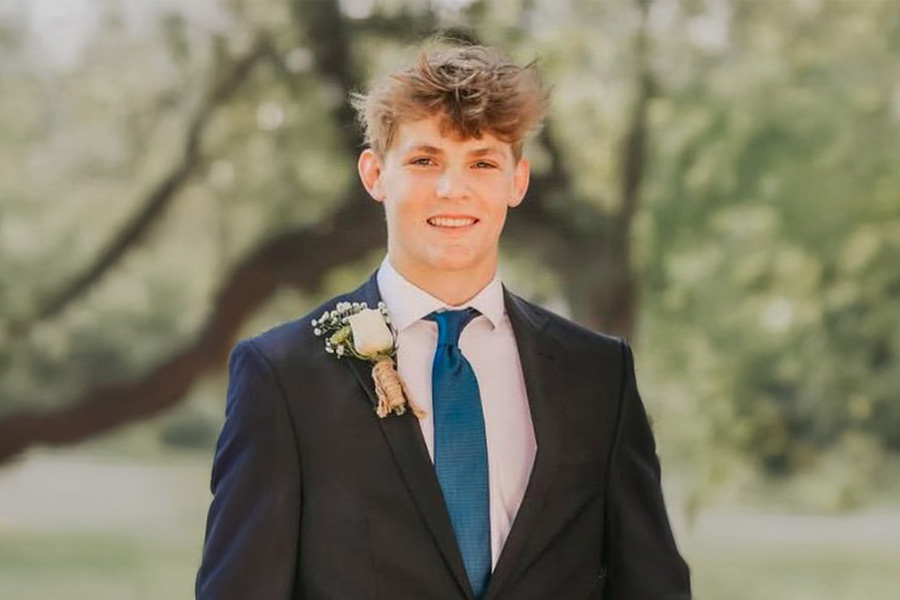

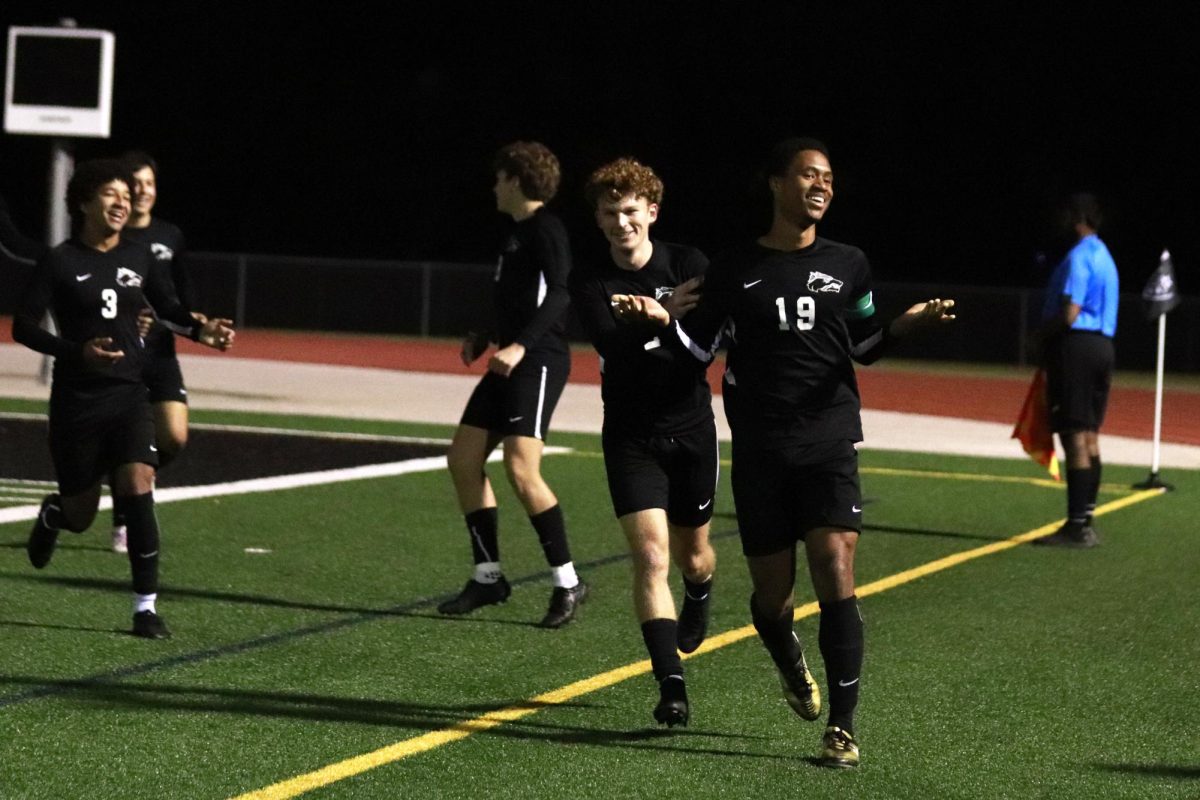
![Taking a breath as he raises his arm up and out of the water, sophomore Kaden Padilla swims the 500 freestyle at the UIL state meet on Feb. 21-22. Padilla placed 10th overall and second in the consolation final in the event, dropping two seconds. “My family was there, so being able to drop time for them was really special,” Padilla said. “It was awesome [finding out I advanced to the consolation finals]. I wasn’t expecting it, and I was very surprised. My parents being there definitely made me a lot happier knowing they got to see me swim in finals.” Photo by Skyler King.](https://cphswolfpack.com/wp-content/uploads/2025/03/kaden-padilla.jpg)

![Three defenders try to stop senior point guard Hope Edwards before the ball leaves her hands. The girls basketball team faced Liberty Hill on Feb 21, losing 58-40. “[My season was] definitely bittersweet,” Edwards said. It's definitely sad [because] I'm gonna miss all my teammates, my coaches and just the whole CP environment.”](https://cphswolfpack.com/wp-content/uploads/2025/03/julia-128-1200x800.jpg)













